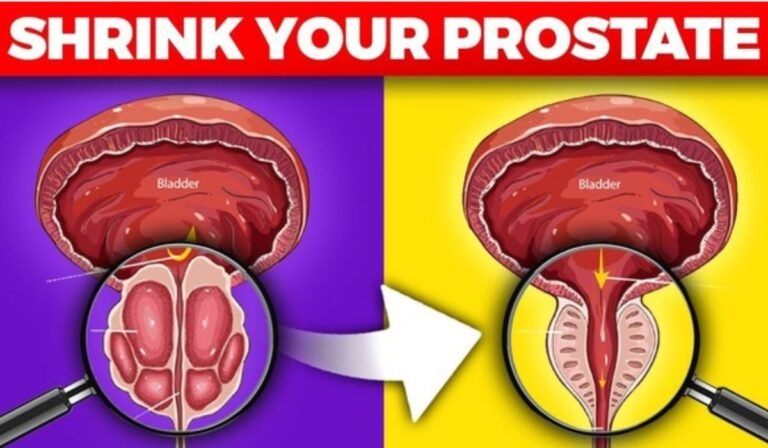Is Heel Pain a Sign of Cancer? Understanding the Potential Causes and Concerns

Heel pain is a common complaint affecting people of all ages and activity levels. While most cases of heel pain are due to relatively benign conditions, such as plantar fasciitis or Achilles tendinitis, some individuals may wonder if their heel pain could be a symptom of something more serious, like cancer. In this article, we’ll explore the potential relationship between heel pain and cancer, discuss the most common causes, and guide when to seek medical attention.
Heel Pain and Cancer: Is There a Connection?
The short answer is that heel pain is rarely a direct symptom of cancer. However, in some rare cases, heel pain can be caused by certain types of cancers that have metastasized (spread) to the bone or surrounding tissues in the heel area. It’s important to note that these instances are extremely uncommon, and the vast majority of heel pain cases are related to more common, non-cancerous conditions.
Common Causes of Heel Pain
To better understand the potential relationship between heel pain and cancer, it’s helpful first to explore the most common causes of heel pain, which include:
1. Plantar Fasciitis: This condition is characterized by inflammation of the plantar fascia, a thick band of tissue that runs along the bottom of the foot, connecting the heel bone to the toes. Plantar fasciitis is one of the most common causes of heel pain and is often triggered by overuse, improper footwear, or biomechanical issues.
2. Achilles Tendinitis: The Achilles tendon connects the calf muscles to the heel bone, and inflammation or irritation of this tendon can lead to heel pain, especially during physical activities that involve running or jumping.
3. Heel Spurs: Heel spurs are bony protrusions that develop on the underside of the heel bone. While not always painful, heel spurs can cause heel pain, especially when combined with other conditions like plantar fasciitis.
4. Bursitis: The heel contains several fluid-filled sacs called bursae, which act as cushions between bones and soft tissues. When these bursae become inflamed, it can lead to heel pain and swelling.
5. Stress Fractures: Repetitive stress or trauma to the heel bone can cause tiny cracks or fractures, leading to localized heel pain and tenderness.
6. Arthritis: Certain types of arthritis, such as rheumatoid arthritis or gout, can affect the joints in the heel and cause pain, stiffness, and swelling.
In most cases, heel pain is caused by one or more of these common conditions, which are typically related to overuse, injury, or biomechanical issues rather than cancer.
When Could Heel Pain Be a Sign of Cancer?
While heel pain is rarely a direct symptom of cancer, there are a few instances where it could potentially be linked to certain types of cancers:
1. Bone Cancer: Cancers that originate in the bones, such as osteosarcoma or Ewing’s sarcoma, can sometimes cause localized pain in the affected area, including the heel bone. However, this type of pain is usually accompanied by other symptoms, such as a visible mass or lump, swelling, and a general feeling of ill health.
2. Metastatic Cancer: In some cases, cancers that have spread (metastasized) from other parts of the body to the bones or soft tissues in the heel area can cause pain. This is more likely to occur with advanced-stage cancers, such as breast, lung, or prostate cancer.
3. Blood Cancers: Certain types of blood cancers, such as leukemia or multiple myeloma, can cause bone pain or tenderness, including in the heel area. However, these cancers often present with other symptoms, such as fatigue, weight loss, and abnormal blood counts.
It’s important to note that instances of heel pain being directly related to cancer are extremely rare, and most cases of heel pain can be attributed to more common, non-cancerous causes.
When to Seek Medical Attention for Heel Pain
While heel pain is generally not a sign of cancer, it’s still important to seek medical attention if you experience persistent or severe heel pain, especially if it’s accompanied by other concerning symptoms. Here are some situations where you should consult a healthcare professional:
1. Heel pain that persists for more than a few weeks, despite rest and self-care measures.
2. Severe or excruciating heel pain that interferes with daily activities or keeps you awake at night.
3. Heel pain accompanied by swelling, redness, warmth, or other signs of infection.
4. Heel pain that occurs alongside other concerning symptoms, such as unexplained weight loss, fatigue, or night sweats.
5. Heel pain that doesn’t improve with conservative treatments, such as rest, ice, and over-the-counter pain medication.
Your healthcare provider will perform a thorough examination, which may include imaging tests like X-rays or MRI scans, to determine the underlying cause of your heel pain and rule out any serious conditions, including the rare possibility of cancer.
Prevention and Treatment of Heel Pain
While heel pain is rarely a sign of cancer, it’s still important to address and manage this condition to prevent further complications and maintain your overall health and mobility. Here are some tips for preventing and treating heel pain:
1. Wear proper footwear: Choose shoes that provide adequate cushioning and support, especially for activities that involve a lot of walking or running.
2. Stretch and strengthen: Incorporate stretching and strengthening exercises for your calves and feet into your routine to improve flexibility and support.
3. Maintain a healthy weight: Excess weight can put additional strain on your heels and contribute to heel pain.
4. Use orthotic inserts: Over-the-counter or custom-made orthotic inserts can help redistribute pressure and provide additional arch support.
5. Rest and ice: If you experience heel pain, take a break from activities that aggravate the condition and apply ice to the affected area to reduce inflammation.
6. Consider physical therapy: In some cases, working with a physical therapist can help address biomechanical issues and strengthen the muscles and tendons around the heel, promoting healing and preventing future injury.
7. Medications: Over-the-counter pain relievers and anti-inflammatory medications can provide temporary relief for heel pain, but it’s important to consult with a healthcare professional before using these medications long-term.
8. Surgery: In severe or chronic cases that don’t respond to conservative treatments, surgical interventions may be necessary to correct underlying issues or repair damaged tissues.
By addressing heel pain promptly and following a comprehensive treatment plan, you can effectively manage this condition and reduce the risk of further complications.
Conclusion
While heel pain is rarely a direct symptom of cancer, it’s important to be aware of the potential causes and seek medical attention if the pain persists or is accompanied by other concerning symptoms. In the vast majority of cases, heel pain is caused by common, non-cancerous conditions like plantar fasciitis, Achilles tendinitis, or heel spurs. However, if the pain is severe, chronic, or accompanied by unexplained weight loss, fatigue, or other concerning symptoms, it’s crucial to consult with a healthcare professional to rule out any potential underlying conditions, including the rare possibility of cancer. By being proactive and addressing heel pain promptly, you can effectively manage this condition and maintain your overall health and mobility.
Sandra_Obrien
View All By Sandra






